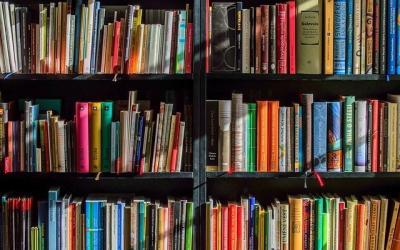RESISTENCIA ABORIGEN Y PERVIVENCIA DE SU LEGADO: UNA MIRADA DESDE EL PROCESO DE ENSEÑANZA APRENDIZAJE DE LA HISTORIA
ABORIGINAL RESISTANCE AND SURVIVAL OF THEIR LEGACY: A VIEW FROM THE TEACHING-LEARNING PROCESS OF HISTORY
Fecha recibido: 15/04/2020 | Fecha publicado: 28/04/2021 | Fecha corregido: 15/04/2021 |Autores
Alfredo Caballero Labrada, Gustavo Josué López Ramírez, Osmel Reyes Pacheco
RESUMEN
El trabajo aborda las principales manifestaciones de rebeldía aborigen en nuestro país durante el proceso de conquista y colonización española. Se ofrece una caracterización de los principales métodos de explotación aplicados por los colonizadores, causantes del exterminio de las poblaciones aborígenes que habitaron el extenso archipiélago cubano y de la imposición de una nueva cultura y de manifestaciones de rebeldía. Destaca la importancia del empleo de las fuentes históricas que ofrecen información sobre las comunidades aborígenes cubanas en la enseñanza de la Historia; enfatizando en los avances científico alcanzados en disciplinas como la Arqueología, Antropología, Etnología, Lingüística, la Historiografía, entre otras. Se plantean en la investigación algunas consideraciones para el abordaje del componente etnohistórico-aborigen en el proceso de enseñanza-aprendizaje de la Historia de Cuba en la Educación Superior. Además, ofrecemos elementos que demuestran la pervivencia del legado aborigen en nuestra cultura material y espiritual y lo significativo que resulta el conocimiento de los mismos para fomentar en los estudiantes de la carrera Marxismo-Leninismo e Historia el amor y rescate de nuestras raíces históricas en aras de fortalecer nuestra identidad nacional.
PALABRAS CLAVES: componente etnohistórico-aborigen, resistencia aborigen en Cuba, proceso de enseñanza-aprendizaje de la Historia, proceso de conquista y colonización española, legado aborigen a la cultura material y espiritual.
ABORIGINAL RESISTANCE AND SURVIVAL OF THEIR LEGACY: A VIEW FROM THE TEACHING-LEARNING PROCESS OF HISTORY
ABSTRAC
The work deals with the main manifestations of aboriginal rebellion in our country during the process of Spanish conquest and colonization. It offers a characterization of the main exploitation methods applied by the colonizers, which caused the extermination of the aboriginal populations that inhabited the extensive Cuban archipelago and the imposition of a new culture and rebellious manifestations. It emphasizes the importance of the use of historical sources that offer information on Cuban aboriginal communities in the teaching of History; emphasizing the scientific advances reached in disciplines such as Archeology, Anthropology, Ethnology, Linguistics, Historiography, among others. Some considerations for the approach of the ethnohistorical-aboriginal component in the teaching-learning process of Cuban History in Higher Education are raised in the research. In addition, we offer elements that demonstrate the survival of the aboriginal legacy in our material and spiritual culture and how significant is the knowledge of them to encourage students of Marxism-Leninism and History to love and rescue our historical roots in order to strengthen our national identity.
KEY WORDS: ethnohistorical-aboriginal component, aboriginal resistance in Cuba, history teaching-learning process, Spanish conquest and colonization process, aboriginal legacy to the material and spiritual culture.


